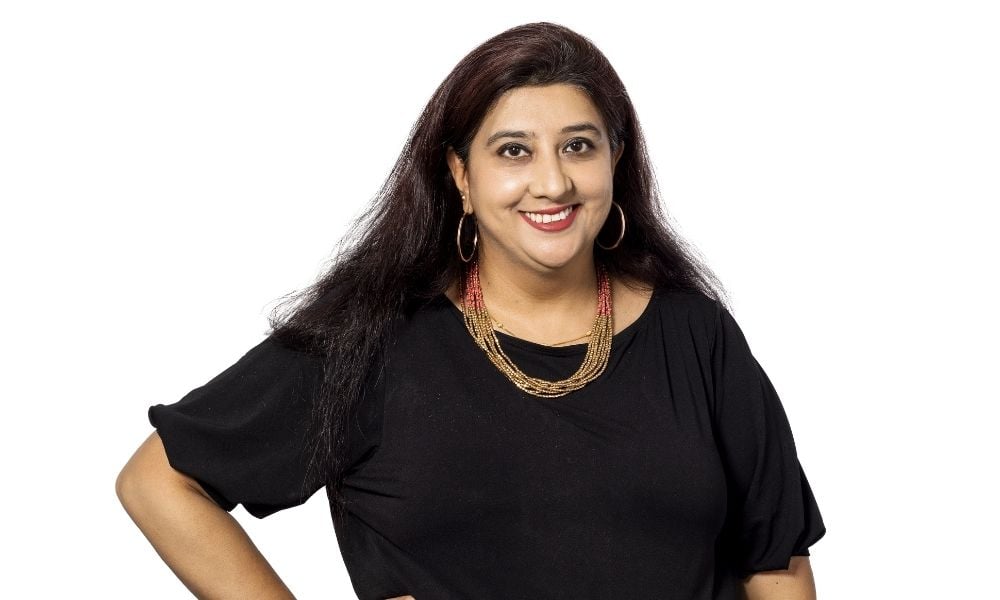
The issue of wellbeing isn't a choice for organisations here – it's something that is necessary,' says HR leader at DDB Mudra

Last week, DDB Mudra introduced a wellbeing app for staff in India to mark World Mental Health Day.
This not only gives employees access to support wherever they are, but also helps reinforce the message that mental wellbeing is an issue the organisation takes seriously, says Rita Verma, president and head HR.
The creative marketing communications company has been ahead of the curve when it comes to recognising the importance of wellbeing, she says.
“We started on this journey a few years back and were one of the first players to get into this space in India. The issue of wellbeing now though is something which isn’t a choice for organisations here – it’s something that is necessary.
“We had decided ‘Let’s not wait for something to happen before we start doing something about it.’”
The organisation takes a holistic approach, and hasn’t been afraid to employ innovative practises to help employees think more about their wellbeing.
“There's so much work happening and people are so caught up, we realised sometimes they're not even getting up from their desk because they’re so busy,” says Verma. “So we started getting in experts and doing some office yoga sessions, which breaks the rhythm and gets people exercising.”
Full hour-long yoga sessions were organised but Verma says to reach a wider audience, another approach proved more effective.
“We did flash mob-type for whole floors and some dance sessions too,” she says, which proved popular and fun.
The company’s mental health strategy began before Covid became an issue, according to Verma.
“We realised the importance of encouraging discussions around mental health, especially here in India, where you can’t say, ‘I’m going through anxiety, going through depression or meeting a psychiatrist’. Those are not conversations which are very common in the country.
“The focus at DDB was to get conversations going around it and to normalise those conversations. We knew it was important for people to understand it's fine to talk about it, that as an organisation, we are okay with it.”
To help, the company linked up with a mental health provider and organised sessions in the workplace where a representative came along to give a presentation.
“We were surprised by the response,” says Verma. “Generally, to get people on training programmes, sometimes you seem to literally have to drag them along, but we were surprised when we did the first session in the office - it was actually full.
“People asked a lot of questions, it was much more engaging than we thought, and we realised that there's so much people want to ask, and they didn't know where to go. That was quite heartwarming.”
Seeing there was a lot to be done in that space, DDB tied in with the provider to give employees access to 24-7 confidential counselling services, not just to employees but also their families.
“During COVID, there was a huge spike in the number of people reaching out to counsellors,” says Verma.
It was an especially difficult time in the second wave when the company lost a number of employees to the virus and other employees lost family members.
“During that time, with the provider, we did a lot of sessions on mental health, getting teams together and talking about what they were going through,” she says.
Staff began returning to the office just over a year ago now, and work in the wellbeing space continues to be a priority.
“We have focus group sessions with managers, with the leadership teams, to teach them how to deal with employees who are showing symptoms of being mentally unwell or who are opening up about having mental health issues,” says Verma.
In another recent advance around wellbeing, DDB has introduced something called Wellness Leave.
“This started off with an entire conversation on period leave,” she says. “We got people to talk about it and created a focus group. What came from that was that if you're trying to be inclusive, it’s important to acknowledge that a man could also be going through issues, maybe a backache, a migraine. So it was after these conversations that we decided to call it Wellness Leave.”
In terms of getting boardroom buy-in, Verma says she was grateful there was an entire acceptance that the organisation should be doing something for employees.
“To get boardroom leaders into the conversation, it takes time; [for] some, we had to work towards it; but some were very accepting straight away to the fact that, yes, we are being very humane about this conversation.”
There have been benefits too in terms of retention and attraction of talent, she says.
“It makes a difference because it helps knowing there’s compassion in an organisation and people do consider that.”
It’s also important to the company’s DE&I strategy, says Verma, since people know DDB is an organisation where disabilities can be openly discussed.
And, ultimately, for a creative business, there are the benefits from people feeling happier, she says.
“If you do have happy people at work, you give them the space where their ideas can flourish, and they get their creative hats on. When their mind space is really relaxed, only then they can come up with the best of ideas.”